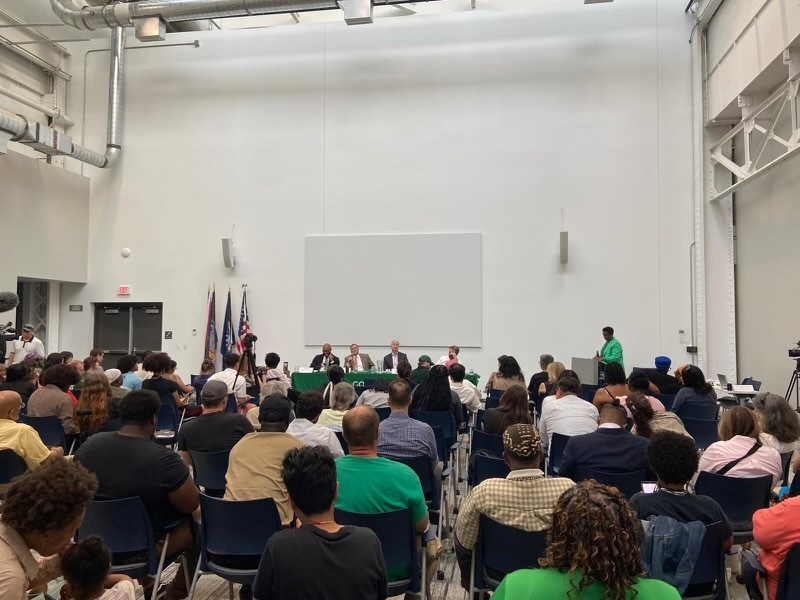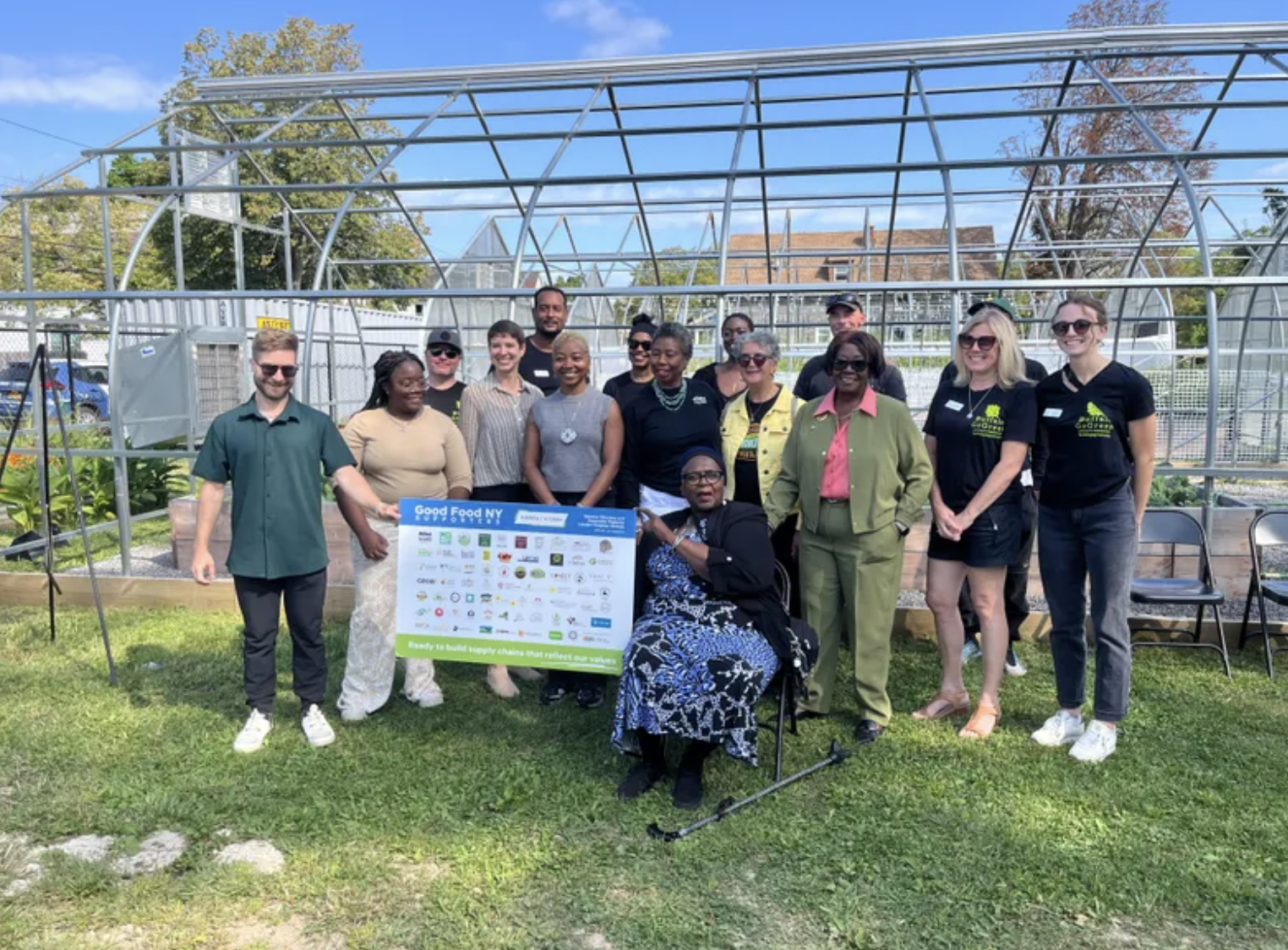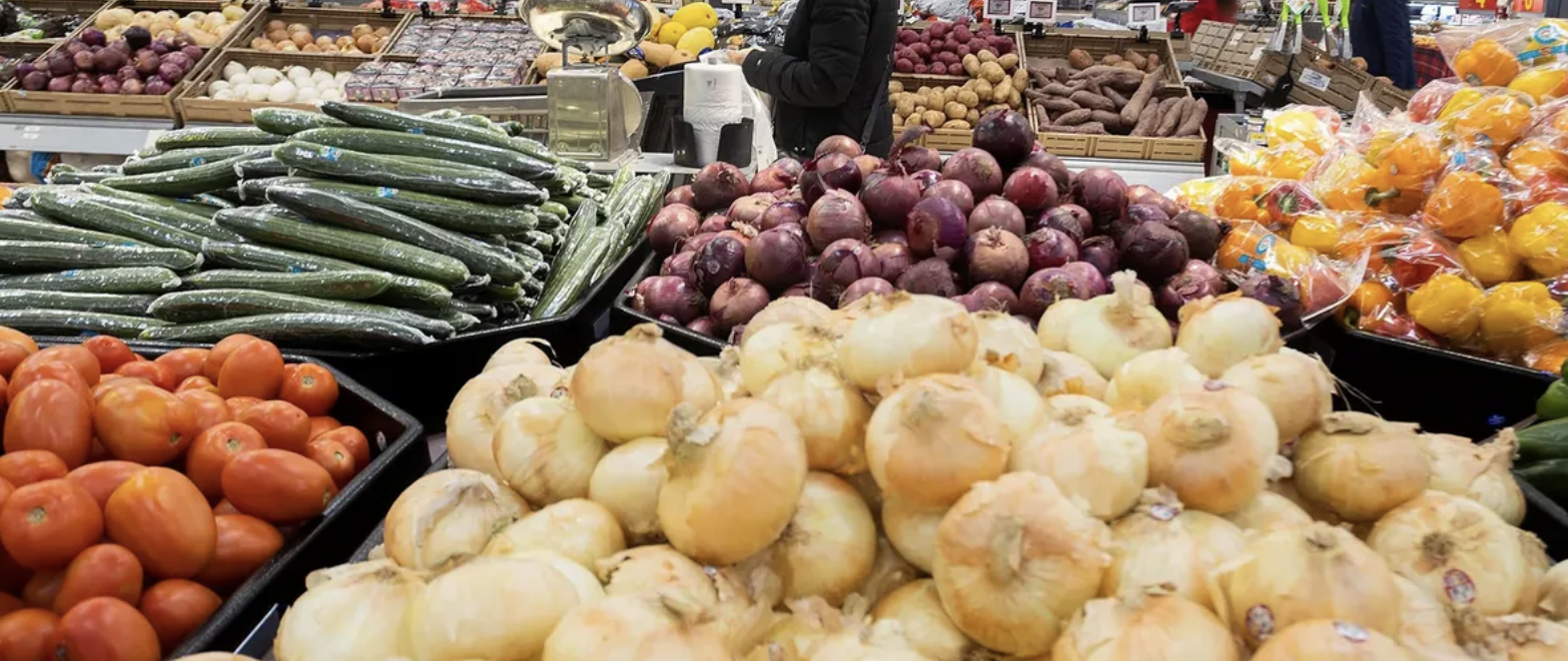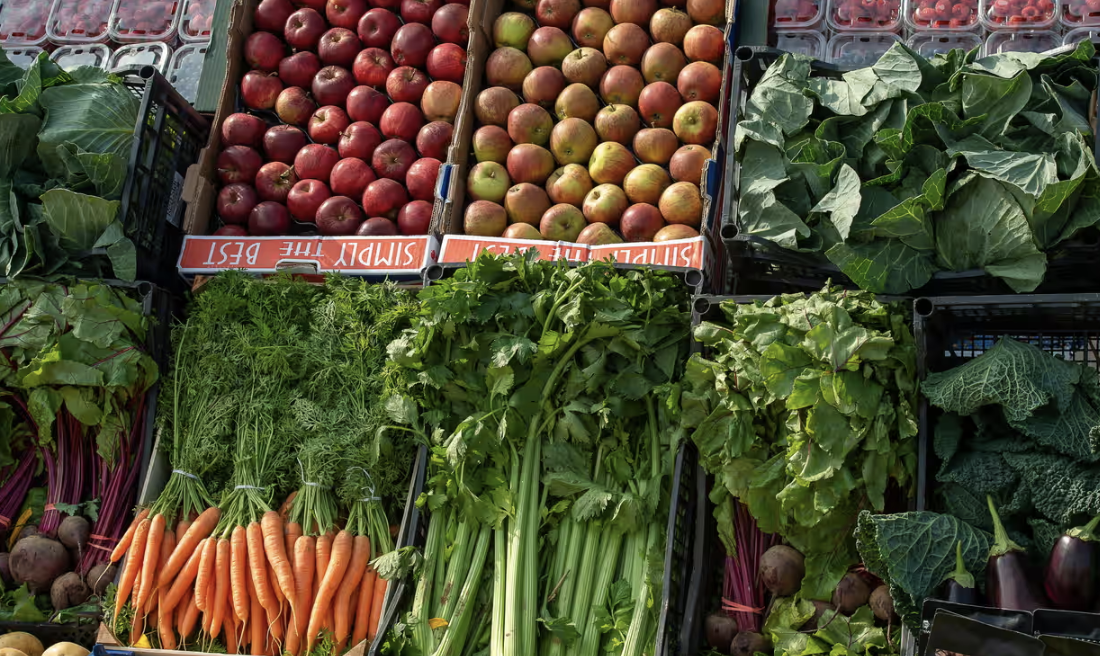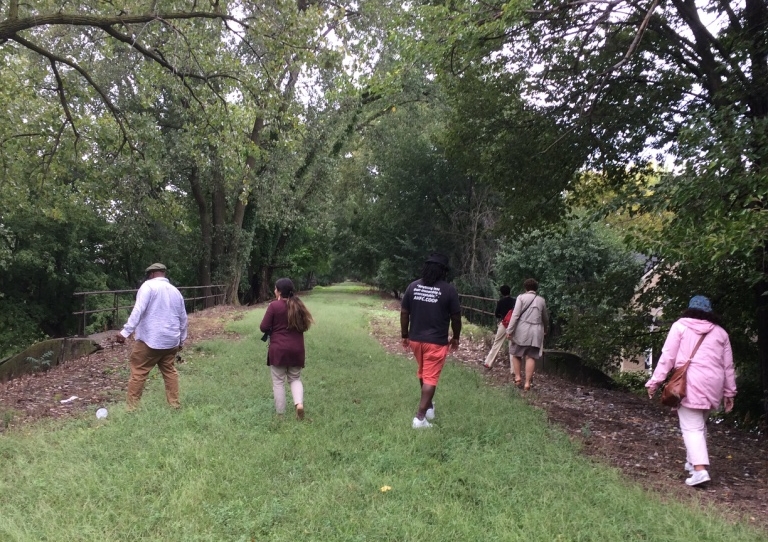The importance of food equity and food justice are becoming increasingly major issues in Buffalo. Recently, a food forum was held, where mayoral candidates James Gardner (R), Anthony Tyson-Thompson (D), Michael Gainer (I), and Sean Ryan (D) all weighed in on the topic. Democratic candidates Chris Scanlon, Garnell Whitfield, and Rasheed Wyatt were unable to attend due to scheduling conflicts (but they did submit statements).
The standing room only event, which was held at the Northland Workforce Training Center, centered around the candidates’ plans to support urban agriculture, access to vacant lots, food chain workers, youth employment, and healthy food retail outlets.
Over 12% of all Buffalo households are considered food insecure, with over 30% of Buffalo households relying on the Supplemental Nutrition Assistance Program (SNAP), and these numbers are increasing.
All of the mayoral candidates should be looking at best practice models in the region, as well as in other cities including Detroit, where programs such as the Greening of Detroit and Keep Growing Detroit have helped to literally change the landscape of the city. Buffalo has the ability to do the same, especially by empowering existing organizations that are attempting to create similar opportunities for its urban neighborhoods. Regional organizations such as the Juneteenth Agricultural Pavilion, Massachusetts Avenue Project (MAP), Grassroots Gardens Western New York, Buffalo Freedom Gardens, and Aunt Connie’s Ed-U-Kitchen are currently rallying around the common goals of the Good Food Buffalo Coalition (GFBC), which hosted the June 4 Mayoral Candidates Food Forum.
“Buffalo’s first Mayoral Food Forum was designed to give candidates an opportunity to share how they would implement a comprehensive food plan as mayor of Buffalo,” said Della Miller, Vice Chair of the Good Food Buffalo Coalition’s Leadership Council. “More than one hundred residents attended—filling the space to standing room only—demonstrating just how important food access and affordability are to our community. Residents came with a strong desire to hear how candidates would address the real challenges faced daily by urban farmers, gardeners, and agricultural groups.”
Almost 54% of Buffalo’s children and youth under 18 live below the poverty line, causing the majority of the 32,000 students enrolled at Buffalo Public Schools to rely on school food for most of their weekly meals.
According to MAP’s website, GFBC is composed of organizations representing food, farming, labor, environmental and animal welfare sectors committed to advocating for the adoption of the Good Food Purchasing Program by the Buffalo Public School District. The Good Food Purchasing Program is a national initiative that seeks to transform the way public institutions purchase food by creating a transparent and equitable food system built on five core values: local economies, health, valued workforce, animal welfare, and environmental sustainability.
GFBC is made up of 35 member organizations and numerous individual supporters across Buffalo and Western New York. Its goal is to “shift the ways that public institutions purchase food, to generate food supply chains that center racial justice and transparency, to build local economies and valued workforces, and to foster community health and nutrition, environmental sustainability, and animal welfare.”
Numerous residents submitted questions for the candidates, asking about their plans for a range of food-related topics, including:
- Food-related education and employment for the city’s youth;
- How they would respond to Federal-level funding cuts to food-related programs;
- What policies they would put in place to increase residents’ access to vacant lots and to water for urban agriculture;
- How they intend to protect food chain workers’ rights; and
- How they will support Buffalo Public Schools in expanding their food purchasing programs to continue to increase healthy, fresh, and culturally relevant foods for students.
Topics that were discussed at the food forum included providing residents with access to vacant lots throughout the city, in order to plant raised beds for farming. The notion of opening an Office of Urban Agriculture and Food Access (with its own dedicated staff and budget) was also addressed, which I found to be an excellent idea. Currently, there is a lot of headway being made, but there is also a degree of fragmentation among the organizations.
“Food apartheid is a systemic, legal, socio-economic, intentional attack on black and brown communities,” said Pamela James, Chair of the Good Food Buffalo Coalition’s Leadership Council. “Buffalo’s community members’ overwhelming presence at the Good Food Buffalo Coalition’s Mayoral Forum statement is loud and clear: community members hold political leaders accountable. Buffalo communities are not going to stand for food apartheid.”
“Buffalo’s communities are working hard to address food-related issues, but their efforts are often constrained by city policies and red tape,” said Jessica Gilbert-Overland, Director and Co-Founder of the Good Food Buffalo Coalition. “We need city-level policies that facilitate, rather than hinder, community-driven solutions to increase food access in Buffalo by promoting urban agriculture, expanding food education, fostering local food businesses, and protecting workers’ rights.”
“There are a lot of individual people and organizations in Buffalo who have taken a grassroots approach to teach the basics of healthy food: how to grow and how to cook,” said Connie Ervin, CEO of Aunt Connie’s Ed-U-Kitchen. “We need to harness that power and energy to advance a comprehensive city-wide plan to address nutritional options for the families in our community. We especially need to expand food-related education in our schools so that our young people understand the benefits of healthy food and learn to prepare good tasting options.”
“For decades, Grassroots Gardens has supported community members and groups looking to improve their neighborhoods through the reclamation and transformation of vacant lots,” said Tim Chen, Executive Director of Grassroots Gardens Western New York. “Everyone trying to grow in Buffalo deserves a clear, concise pathway for access to and subsequent improvement of public land that is currently held by our city. We urge our elected officials to continue improving this process, to consider land policy recommendations that have been offered by community groups, and to commit support for the use and activation of vacant land.”
“In Buffalo, where neighborhoods are shaped by deep-rooted inequities, food access and economic disparities often go hand in hand,” said Jaime Swygert, Founder and Chair of the Juneteenth Agricultural Pavilion. “We need Buffalo’s elected officials to prioritize food access education, which is about nutrition, health initiatives and creating pathways to economic empowerment. Teaching residents how to grow, access, and build businesses around food is restorative. It creates jobs, and strengthens entire communities from the ground up. Food access education is about justice, survival, and empowerment. When residents understand where their food comes from and how to grow or access it, we begin to reclaim health, community, and dignity.”
Several relevant organizations set up tables in Northland’s foyer to share information about their work, including Buffalo Parent Teacher Organization, Buffalo Public Schools’ Department of Child Nutrition Services, East Side Stewards, Cornell Cooperative Extension Harvest NY, Grassroots Gardens Western New York, Good Food Buffalo Coalition, Massachusetts Avenue Project, and University at Buffalo Food Systems Planning and Healthy Communities Lab. Numerous organizations were also Forum supporters, including Buffalo Go Green, Buffalo Parent Teacher Organization, Designing to Live Sustainably, Fare Share Western New York, Food for the Spirit, Grassroots Gardens Western New York; Groundwork Market Garden, LifeSource Systems, Massachusetts Avenue Project, Pelion Outdoor Classroom, University at Buffalo Food Systems Planning and Healthy Communities Lab, Western New York Center for Occupational Safety and Health, and Western New York Environmental Alliance.


